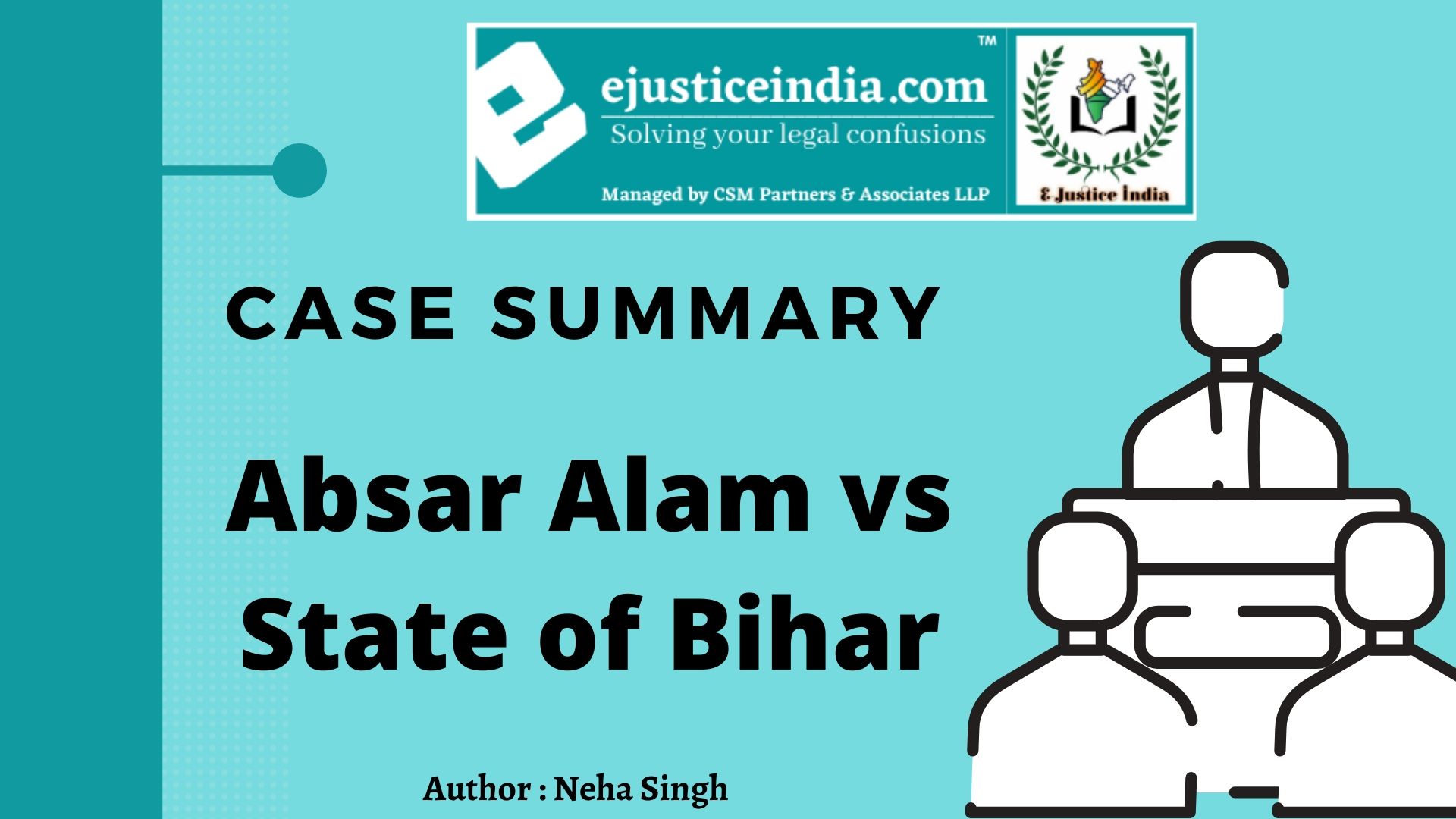JARNAIL SINGH AND ORS. VS LACHHMI NARAIN GUPTA AND ORS.
Author : SYEDA KHIZRA RIZVI
In the Supreme Court of India
Civil Appellate Jurisdiction
Case No. Special leave petition (civil) no. 30621 of 2011
Appellant :Jarnail Singh and ors.
Respondent: Lachhmi Narain Gupta and ors.
Date of the Judgment: 26th Sept. 2018
Bench OF JUDGES
Former Chief Justice of India Dipak Misra and Justice Kurian Joseph, Justice RF Nariman, Justice SK Kaul, Justice Indu Malhotra.
Introduction
Reservation has always been a contentious issue in Indian politer from a brief period. B R Ambedkar after the Poona Pact gave up the demand of the Dalit community for a separate electoral colleges. Thus, there was a national compact that the depressed classes should be portrayed in appointments in public services and in local bodies, in other words we can say that reservation in public services and local bodies. The given depressed classes came to be held as Scheduled Tribes and Scheduled Caste.
Facts
1. A bench of Justice Adarsh Kumar Goel and Justie Ashok Bhushan was hearing an Special Leave Petition preferred by the Centre defying the judgment of the August-2017, Delhi High Court quashing the Dot Office Memorandum (OM) which was on 13th August, 1997, which gives for the continuation of reservation in promotions indefinitely.
2. On 17th May , a bench of Justice Kurian Joseph and Justice Mohan M Shantanagoudar, hearing an Special Leave Petition against the judgement of Punjab and Haryana High Court, 2011, quashing a similar in context of Office Memorandum in pursuance of M Nagaraj, had directed that the pendency of this Special Leave Petition shall not stand in the path of Union of India taking steps for the grounds of promotion from reserved to reserved and unreserved to unreserved and also in the concern of promotion on merits.
3. The Constitution bench of the Supreme Court (SC) , on 26th September, 2018 delivered a judgement provided by Justice Rohinton Nariman, that reservation in promotions does not require the state to gather quantifiable data on the backwardness of the SC/ST, though makes the cherry on the cake in either group ineligible for the benefits
Issues Raised :-
1. Whether M. Nagaraj v. Union of India (Nagaraj) required reconsideration?
2. Nagaraj verdict had held that before the SC and ST candidates can be promoted, quantifiable data that they were indeed backward has to be proven to the states.
3. Whether the creamy layer among SC/STs should be restricted from gaining promotions through reservations?
Judgement
The court sided the need to collect quantifiable data which was formulated by its 2006 verdict in the case of M. Nagaraj v. Union of India as it ignored the reasoning of a 9 judges bench in the case of Indra Sawhney (1992) that any discussion on creamy layer has no relevance in the part of Scheduled Caste or Schedule Tribes. The court has taken more than a age to correctify an oddity in the Nagaraj case which brought in a creamy layer edited for promotions for employees of SC or ST. This resulted in objection of the promotion of thousands of employees.


